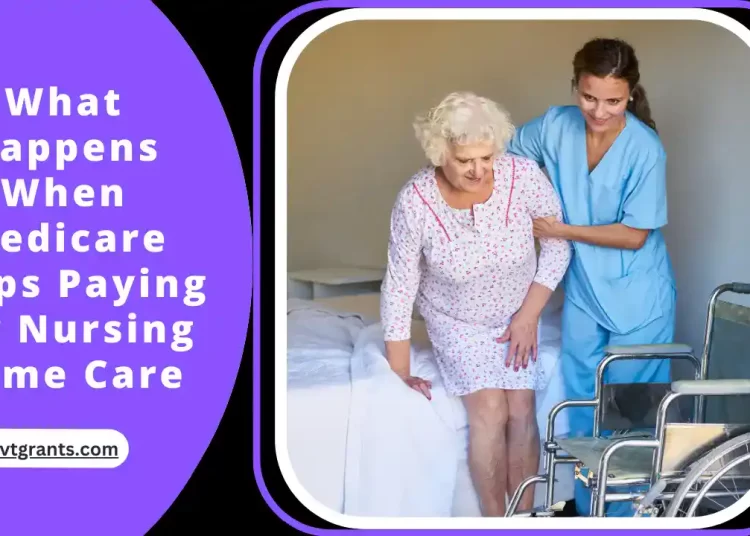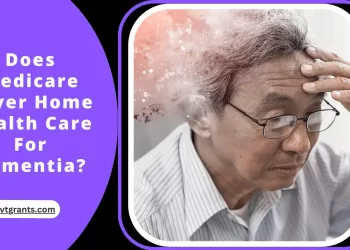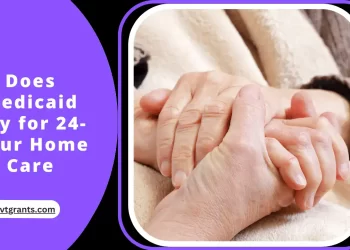What Happens When Medicare Stops Paying For Nursing Home Care? – Are you wondering how to pay for a nursing home with no money? Don’t panic, as you are not alone. Paying for long-term care is one of the most challenging things for those on limited income. As per HHS reports, nearly 70% of senior adults (65 or older in age) need long-term care and medical assistance at some point in their lives. Nursing homes provide a safe alternative for senior citizens who need long-term and high-level care beyond what assisted living may offer. But expenses add up quickly.
While Medicare covers short-term 100-day support in skilled nursing facilities, what happens when Medicare stops paying for nursing home care? Fortunately, there are many other alternate options that you or your family can explore to provide the necessary care to your senior relative. In this guide, we will provide all potential avenues to consider if your Medicare coverage for nursing care homes comes to an end and you want to ensure continued access to the care.
Head over to our next guide to learn how to get incontinence supplies covered by Medicaid.
Highlights of this Post
Key Takeaways
- Medicare covers nursing home care for only 100 days, providing full cost coverage for the first 20 days and requiring a daily coinsurance for days 21 to 100.
- After Medicare coverage ceases, options such as Medicaid, Veterans Administration benefits, long-term care insurance, and reverse mortgages can provide necessary financial support.
- With the average monthly cost of a shared room in nursing homes at $7,980, and $9,034 for a private room, long-term care is prohibitively expensive for most on a fixed income.
- Medicaid may cover the full cost of nursing home care for eligible low-income seniors, subject to state-specific eligibility criteria and coverage limitations.
- Besides traditional insurance and federal programs, other avenues like selling or renting property, personal loans, and community resources can also help manage nursing home expenses.
What Is Nursing Home Care?
A nursing home offers long-term care and supervision for those who need 24-hour or round-the-clock supervision since they have unique medical needs that prevent them from living an independent life. Nursing home residents have serious medical conditions that require specialized medical care.
For instance, residents need significant assistance with mobility or need to be given time-sensitive medications. This level of care is provided by licensed practical nurses, registered nurse or doctor orders, and certified nursing assistants. Nursing homes offer services that support residents’ daily living activities, like meal preparation and bathing assistance. Read our next guide to know which Dentists take Medicare and Medicaid For Adults near me
What Do Nursing Homes Cost?
Nursing home care in the United States is quite expensive. According to the Cost of Care Survey by Genworth, the monthly median cost is $7980 for a shared room in a nursing home and $9034 for private rooms.
These figures are quite unaffordable for Americans on fixed or limited income. Senior citizens who need to stay in a fixed nursing facility for more than 100 days wonder what happens when Medicare hospital days run out? Keep reading to learn alternative ways.
Does Medicare Cover Skilled Nursing Care Costs?
Understanding the importance of the Medicare program is vital when it comes to receiving nursing care. The federal health insurance program Medicare focuses on individuals who are 65 or older and offers coverage for nursing home care in a few circumstances.
Medicare covers skilled nursing facility care, a type of nursing home care that needs the expertise of healthcare professionals like physical therapists or registered nurses.
But do you know how long Medicare pays for nursing home care? Medicare Part A (hospital insurance) provides coverage for 100 days of skilled nursing facility care but under specific conditions for limited time. To know what qualifies a patient for skilled nursing care, take a look at the following eligibility criteria:
- The coverage is available following an eligible hospital stay of a minimum three days.
- You’re a professional who determines you need skilled nursing care daily.
- You need skilled nursing services for hospital-associated medical conditions such as infections that you were treated for during a qualifying 3-day inpatient hospital stay.
Readers can take a look at our next guide to know if Medicare Covers Home Health Care for Dementia.
What Medicare Pays For?
The Medicare program covers 100% of the costs for the initial 20 days. However, candidates need to pay a daily coinsurance amount up to $204 per day from day 21 to day 100. After day 100, candidates have to clear the entire cost of care. Following is the list of services that Medicare generally covers in a skilled nursing facility:
- Meals
- Dietary counseling
- Semi-private room
- Physical therapy
- Medications
- Personal therapy
- Medical social services like counseling
- Medical supplies and equipment
- Ambulance transportation
- Skilled nursing care.
It is critical to know that the Medicaid coverage for nursing home care emphasizes short-term rehabilitation and not long-term custodial care. Custodial care refers to assistance with daily living activities like bathing, eating, and dressing that is provided in nursing homes. So what happens to the elderly who have no money? They need to look for alternate sources to get financial support.
Our next blog will help you cover all details about whether Medicaid Pays for 24-Hour Home Care or not.
What Happens When Medicare Stops Paying For Nursing Home Care? – Alternative Ways To Pay For Nursing Home Care
Medicare stops paying for nursing home care after 100 days in a skilled nursing facility, so you or your loved one have to pay for the entire cost of an alternative method or move out of the facility. If you’re wondering what happens when Medicare stops paying for nursing home care, then you can turn to the following options:
1. Medicare At-Home Care
A lot of people leave skilled nursing care facilities after a few weeks to get continued service at another facility or at home. Medicare covers many home health therapies and services. The Medicare Part B covers the following services at home:
- Therapy: Medicare provides physical, speech, and occupational therapy coverage if it is considered necessary and reasonable to treat your health condition. You need to get a prescription from a qualified therapist to get these services covered.
- Social Services: The Medicare program covers medical and social services to help you treat emotional and social concerns associated with your illness. This includes well-being support, counseling, or finding resources in your community.
- Durable medical devices/equipment: Medicare provides coverage for medical equipment such as walkers, wheelchairs, hospital beds etc. These equipment must be prescribed by your healthcare professional in your home.
- Home Health Aide Services: Home Health Aide Services are covered by Medicare if you are receiving skilled nursing care. This includes help with dressing, bathing, and toileting, on an occasional or part-time basis. The program will not cover 24-hour daycare at home, cleaning and shopping services, personal care, and meal delivery by home health aids if it is the only care that you need.
2. Medicaid
Medicaid is a joint federal and state insurance program that offers healthcare coverage to eligible low-income households. The eligibility is limited to low-income children, parents of dependent children, pregnant women, individuals with disabilities, and elderly individuals. The program is limited to those who have income less than $2742 and assets under $2000.
The Medicaid program pays 100% of your nursing home cost if you can meet the eligibility criteria. However, there are stringent rules to follow, and each state has its own eligibility criteria as well as the coverage limitation. Seniors with Medicaid can get coverage for the following:
- Nursing services
- Meals
- Pharmaceutical services
- Medication management
- Medical-related therapies like physical and occupational therapy
- Treatment for mental illness
- Cognitive decline
- Intellectual disability
- Assistance with ADL,
- Standard housekeeping
- Room services
- Emergency dental services
- Personal hygiene items and services.
3. The Veterans Administration (VA)
The Department of Veterans Affairs including the Veterans Health allows veterans and their family members to pay for nursing home care.
VA through Aid and Attendance Benefits provides long-term care coverage in:
- VA Nursing Centers
- State Veterans Homes
- Non- VA Nursing Homes.
Besides VA Aid and Attendance Benefits, veterans also get VA pension, VA survivors pension, and Military pension. The benefits that you get from the Department of Veterans Affairs depend on your service-connected disability status, medical needs, veterans insurance coverage, and other details. VA offers three options for nursing home care, and all these options provide medical care as well as 24-hour supervision and ADL assistance.
If you prefer not to age in a community living center or nursing home, then they can qualify for the Housebound Benefit that is available to eligible veterans or surviving spouses who are at their homes and unable to live without assistance due to permanent disability.
4. Long Term Care Insurance
A lot of plans cover the cost of living in nursing homes, such as field and non-skilled care. But certain conditions may apply before you get the benefit, and the waiting period may range between 30 and 90 days. Retirement savings and investment contributed to 14% of long-term care funds in 2021.
It is important to do some research about long-term care insurance before signing for a policy. Around 8% of long-term care funding was provided by long-term care insurance in 2021, with the annual premium ranging between $900 to $9575.
5. Reverse Mortgages
Reverse mortgages help to convert home equity into cash and can be used for paying your long-term nursing home care. You need to be 62 or older in order to be eligible for reverse mortgages. You must be a permanent resident or live in the house for at least one year longer and must not be indebted to federal income tax.
No monthly payments are needed. However, if you move out of your property, including moving into a long-term care facility for more than 12 consecutive months, then you may need to repay the balance of the reverse mortgage, and the mortgage can be more than your property value.
6. Social Security Retirement, Disability, and Supplemental Security
Social Security makes up 50% of post-retirement earnings for seniors 60 and older. The average monthly Social Security income as of 2023 is $1691.53. Do you know how to pay for nursing home care with Social Security?
Social Security can help you pay for nursing home care, but it will not cover the full cost. If you are 65 and older and get SSI, then the Medicaid program can help you pay for nursing home care. This is because Medicaid and Social Security benefits work together to help senior citizens cover nursing home care costs.
Social Security and Supplemental Security Income Benefits work like bank deposits that can help you pay towards nursing home rent or other medical needs. There are many rules and regulations that come with these programs, and the benefits range up to $21552 per year for old age benefits- around $7000 above the poverty threshold.
7. Annuities and Life Insurance
Both life insurance and annuities are complicated financial products that may not pay for long-term care, but once purchased, you can use them, and make payments for whatever purpose, including long-term nursing care. Life insurance and annuities are hybrid products with long-term care riders that offer payment for eligible long-term care without affecting the rest of your benefit payout.
8. Personal Loans And Lines Of Credit
Personal loans are easy to get and have strong credit and income requirements to make monthly payments. This may be limited if you require long-term care but is possible if you have a working spouse who can handle the repayment on your behalf.
It is a helpful source of temporary funds to cover your medical costs. The best thing is that it comes with a short funding timeline and doesn’t require equity, but they may have a higher interest rate and require monthly payments.
9. Selling or Renting Properties
Homeowners who want to transition to nursing homes or assisted living facilities can benefit by selling their home or renting out their property for additional income.
This will provide a dual benefit as the homeowner will not be living in their property and can eliminate the ongoing expenses for upkeep and maintenance in exchange for funds that they can use for long-term care.
10. Section 202 program
Established in 1959, the Section 202 program offers low-rent housing and supportive services for senior citizens who are 62 years of age or older and belong to the low-income category. Senior citizens must meet the eligibility criteria set by the HUD and apply for the program within the facility or community they are interested in.
11. Home Equity Loan/ HELOC
If you want to keep the door open to home ownership while getting long-term care, then you can tap into your home equity. With a home equity loan or HELOC you can borrow up to 80% of home equity; however, you have to make monthly payments and qualify based on your income and credit.
Generally, it requires 20% equity in the home, a lien on the home, and expensive fees. If you’re applying with the working spouse or other co-signer who is working and can afford the payment, then it can be effective to cover your long-term care needs.
12. Residential Care Homes
Do you know who pays for a nursing home if you have no money? There are many avenues for elderly people to turn to financial support and insure a healthy living.
One of them is residential care homes that enable seniors to afford similar forms of assisted living. The house settings are located within neighborhoods, which makes them a friendlier and more accessible option for elderly people who are overwhelmed by large facilities or communities.
Due to their smaller size, these homes are priced at lower rates and are affordable for seniors with low income. But it is important to note that the homes may not have advanced care, and you can get basic housing and services.
13. Non-Medicare State Assistance
There are many state-level assistance communities as well as non-Medicare programs that help seniors offset the cost with elder care. Depending on your state of residence, every program offers different forms of assistance. For more information and eligibility, you can contact your local Area Agency on Aging.
14. Assisted Living Conversion Programs
Assisted Living Conversion Programs offer funds for homeowners that convert a standard house to economical housing units or apartments for the elderly population. The facilities provide comparable services to licensed assisted living facilities, such as meals, housekeeping, medication, personal care, and transportation.
15. Family Support and Contributions
A lot of people rely on their family members or children for financial contributions that they care for themselves. Family members provided $600 billion in unpaid care in the year 2021 across the nation.
You can ask your family for support if you need long-term nursing care. The only drawback is that family members acting as caregivers do not have medical training, so they may face medical challenges, mental health problems, financial issues, and other caregiver fatigue.
16. Exploring Community Resources
Communities have tons of programs and resources available to support individuals who no longer have Medicare to cover nursing care costs. These resources include nonprofit organizations, senior centers, volunteer services for supportive communities, and faith-based organizations.
17. Advocacy Organizations For Support
Advocacy organizations dedicated to the Medicaid program are a valuable resource to get the right assistance. Following is a list of advocacy organizations that protect the rights of senior citizens and provide them the right resources to navigate the healthcare system.
- AARP: A nonprofit organization that focuses on empowering people as they tend to be agents offers tons of advocacy and resources for seniors.
- Justice in Aging: A national nonprofit legacy advocacy organization that fights for the rights of older adults who belong to low-income groups.
- Medicare Rights Center: A nonprofit organization that is committed to making sure you get affordable health care for senior citizens and people with disabilities.
- National Academy of Elder Law Attorneys: This is an association of attorneys that deals with legal issues that affect senior citizens and people with disabilities.
A lot of recipients want to know whether Medicaid covers acupuncture or not. Our next guide will cover all details about it.
Conclusion
Navigating the complexities of the federal health insurance program Medicare and its coverage for nursing home care is important for senior citizens and their family members. In this guide, we have explored the most frequent question among recipients: ‘What happens when Medicare stops paying for nursing home care’ and have highlighted a list of alternate avenues to get the right assistance. By accessing the aforementioned support system and resources, senior citizens and their family members can make sure they have the guidance and support necessary to navigate changes in their Medicare coverage. Generally, Medicare covers the first 20 days of skilled nursing home care and 80% for up to 80 days after that, but after 80 days, it stops paying for nursing home care, so you can turn to the alternate issues and plan ahead for the transition period.
Check out our blog at Get Government Grants to avail free resources and government programs for low-income families. Our guide has numerous supportive programs and names of organizations that help people in times of need.
Frequently Asked Questions
How To Pay For A Nursing Home In GA?
Nearly 72% of nursing home residents in GA use Medicaid to cover the nursing home care costs. Without Medicaid, long-term care is unaffordable for most people.
How Do I Get Into Assisted Living With No Money Near Me?
Low-income seniors can cover their assisted living costs through Medicaid, Medicare, Medicaid waivers, Veterans Benefits, Social Security, and HUD programs.
Can A Nursing Home Kick You Out For Non-Payment?
Yes, a nursing home may evict a resident for failure of payment but must provide 30 to 60 days prior written notice before discharge and follow all the prescribed process by law.
How Can You Protect Your Assets From Nursing Home Costs?
Protecting assets from nursing home costs is possible through annuities, long-term care insurance, asset protection trusts, irrevocable trusts, life assets, transferring assets, and financial gifts. move
What Can A Nursing Home Take For Payment?
Nursing homes accept various payment methods like personal funds, Medicare, Medicaid, long-term care insurance and veterans benefits.
What Happens When Medicare Runs Out Of Money?
If the Medicare trust fund runs out of money, then the program will not be able to pay hospitals or providers for all benefits in a given year. This can result in low access to healthcare services.














